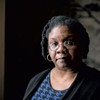Published April 25, 2006 at 5:57 p.m.
In September of 1830, a young woman named Experience Goodrich -- "Speedy" for short -- returned to Burlington from a revivalist camp meeting in St. Albans, feeling weak and feverish. Within a few days she succumbed to an infection and was buried in the Unitarian graveyard.
In the 19th century, such sudden deaths were common. Still, the family of the deceased suspected a form of foul play. Speedy's older sister Electa had seen blood on the young woman's bedclothes, which led her to believe that "she had been in the family way and something had been done to her." So she put it to the jury of prominent Burlingtonians assembled to investigate Speedy's death. Everyone knew what "something" meant -- an abortion. But who had put Speedy "in the family way," and who had performed the lethal procedure?
A cluster of medical students at the University of Vermont were buzzing about Charles Daggett, a colleague of theirs who allegedly had boasted of helping a girl dispose of an unwanted pregnancy. A friend of Daggett's claimed to have seen him prepare a thick wire and a dose of ergot for the purpose. Dr. Benjamin Lincoln, a respected professor at the Medical College, testified that Daggett had sold him a fetus for an anatomical specimen, and Speedy's sister Nancy confirmed that the two young people had been friendly.
Speedy's death happened at a time when the people of Burlington were not feeling charitable toward doctors who performed abortions. (How they felt about abortion itself was a more complex matter.) A certain Dr. Cleaveland in Irasburg had just been sentenced to death for forcing a woman to undergo an abortion that killed her. He himself was the impregnator. Fearing he would be the victim of a lynch mob, Daggett fled by boat to Vergennes, where he continued to maintain his innocence in a letter to Dr. Lincoln. The extent of his guilt, he claimed, was hiring a more experienced doctor to aid a friend in a desperate situation.
The county attorney never brought charges against Daggett. The case faded away into the ranks of the unsolved -- until more than 150 years later, when it piqued the interest of a young historian named Jeffrey Marshall.
Marshall, who's now the university archivist and curator of UVM's Wilbur Collection of Vermontiana, first discovered the Goodrich case 22 years ago. On May 31, University Press of New England will publish The Inquest, a novel in which Marshall explores Speedy's tragic story from the perspectives of three narrators, each with his or her own spin on what really happened.
While the novel doesn't exactly "solve" the mystery, in the conclusive manner of "Cold Case," it does use poetic license to offer the reader some resolution. More importantly, perhaps, The Inquest recreates Andrew Jackson-era Burlington with an historian's feel for details and speech patterns. Mid-read, it's hard to walk across City Hall Park without recalling that it was once Court House Square, a thriving town center where politics were debated publicly, shocking newcomers from the sleepy countryside. (Maybe some things haven't changed.) Or to pick up the Free Press without remembering its humble beginnings as a weekly tabloid put out by the Anti-[Free] Mason party.
The Goodrich case seized Marshall's imagination as soon as he encountered it. In 1982, when the Chittenden County Courthouse burned down, one of the documents salvaged from the ruins was the transcript of the 1830 inquest. A recent M.A. in history, Marshall had been assigned to sort through the court records as part of his job in the UVM library's Special Collections Department. He initially thought the case would make a good subject for a journal article in his field, but a career shift to library science caused him to drop the project.
As a librarian and a curator, Marshall continued to focus on 19th century Vermont -- his first book was a collection called A War of the People: Vermont's Civil War Letters. In 1999, he decided to apply his research skills to the Goodrich case.
"I turned over every stone I could find," says the 50-year-old Georgia resident, in his book-strewn office on the basement floor of Bailey-Howe Library. He's happy to offer a visitor a look at the original court transcript, written on brittle, sepia paper in a nonetheless easily legible hand. Signed by each member of the inquest jury -- prominent citizens of Burlington, including five doctors -- the sheaf of paper feels like a time capsule.
In a history of the UVM Medical College, Marshall spotted a reference to the self-exculpating letter Daggett wrote to Dr. Lincoln. He found the letter itself at Harvard Medical School's Countway Library. In the burial records of the Unitarian Church, he discovered Speedy Goodrich's full name, age and religious affiliation. Between them, the three sources offered enough information to tell a compelling story, but not enough for the rigorous standards of an academic journal. So Marshall, who's an admirer of the historical novels of Patrick O'Brian and Iain Pears, decided to fill in the gaps himself, telling the story as what he calls "plausible fiction."
Marshall initially conceived The Inquest as a novel with one impartial narrator who would sort through the contradictory evidence about Speedy's death. He invented the character of Stephen Decatur Parker, a naïve young man from Addison County who comes to Burlington as a student and is asked to record the testimony at the inquest. Later, though, Marshall decided to give The Inquest a structure similar to Rashomon, the Kurosawa film, in which different narrations of the same incident yield different conclusions. He reconceived Stephen's narrative and added the first-person accounts of Daggett and Speedy's younger sister, Nancy Goodrich Proctor. "I wanted a way to get inside the heads of the principal characters better," Marshall says.
The novel's conceit is that five years after the inquest, the county attorney has solicited these testimonies, to satisfy his own curiosity. Because the accounts are intended for the public, we can never be sure that a particular narrator is telling the truth. Still, we get a strong sense of their distinct values and priorities. Charles Daggett describes himself as "a skeptic at a tender age, in a world where faith was prized over knowledge." He's not overly fazed by the prospect of, say, defiling a graveyard to obtain a study cadaver, but he wishes medical science commanded enough respect to make such adventures unnecessary. Stephen Parker is both more religious and more romantic, prone to flowery descriptions and crises of conscience. Nancy supplies valuable background on the Goodrich family and gives us a sense of what it was like for a woman in 1830 to be single and self-supporting, as Speedy was.
"As I developed their characters, I had in mind what I thought would be typical for that kind of person," says Marshall. "I've always been fascinated by how ordinary people in other eras thought and felt and lived their lives, and I think that is what appeals most to people about history." Copious reading of letters and diaries has given him a sense of how people wrote and spoke in the period.
One difference between the early 19th and 21st centuries is the general attitude toward abortion. Then as now, it occasioned debate among physicians. An abortion case about 10 years before the Goodrich inquest "literally split the county medical society apart," Marshall says. The doctors couldn't agree on whether to discipline their colleague for inducing premature labor in a Williston woman.
However, the 19th-century debate focused on the very real risk to the woman, not the status of the fetus. Nancy Goodrich sums up the traditional approach to abortion when she says, "It has been the custom since the beginning of time that a woman may freely rid herself of a foetus before the time of quickening [movement in the womb], if she can do so without harming herself." Doctors and religious thinkers were starting to question that belief. Marshall suggests that women, particularly midwives, saw this as an incursion on their turf. "[Men] have no more business doctoring a woman with child than I have running for Congress," one of his female characters says scornfully.
Contrary to the popular image of old-time Vermont as a bastion of conservative farmers, its citizens were embroiled in this and many other debates -- about alcohol, slavery, politics and religion. "Burlington really was an intellectual center," Marshall says. One event in the novel resonates strongly -- if unintentionally -- in the wake of Hurricane Katrina. A catastrophic July flood on the Winooski and New Haven rivers has some people talking about God's wrath. One man astutely points out that the disaster may have resulted from human acts, namely the "unrestrained cutting of timber."
A teacher as well as a curator, Marshall hopes the novel will help "make history more meaningful to people who might otherwise regard it as dull and irrelevant." Although University Press of New England chose not to attach transcripts of the historical documents to the novel as an appendix, he plans to make them available on a website that can be reached from the UPNE page.
Marshall says that, as in the 1970s, 1830s America was a time for "questioning the values you grew up with." His novel shows that, without being "feminist," "progressive" or "environmentalist" in the modern senses of those words, some people in that era could and did entertain a broad spectrum of opinions. Nancy Goodrich's view of the reasons for her sister's death is typical. Though she's upset by Speedy's decision to "abjure motherhood," she feels it must be understood in context or not at all. "It is impossible to remove from it various parts, examine them, pass judgment, and put them back in place!" she says. Marshall suggests that we should accord the same respect to our past.
The Student's Rough Guide to Life at UVM, circa 1830
(as depicted in The Inquest)
Getting In: If you want a B.A., you'd better get chummy with the ancients. The entrance exam covers Virgil, Horace and Cicero in the original Latin as well as Greek grammar and some math. Maybe an M.D. is a better prospect: The main requirement is a lack of squeamishness, and the course of study only takes three years. (Bonus points to med-school candidates who are enterprising enough to dig up their own study-cadavers from the soldiers' graveyard.)
Dorms: The upper floors of North or South College [Old Mill]. Your room comes with a bedstead, two chairs, a washstand and a woodstove. You'll have to buy the wood and haul it up three flights yourself. Who needs a gym?
Food: No meal plan required. Actually, no meal plan available. Buy your grub at "private houses, endorsed by the faculty," or try the overwhelmingly student-endorsed option of a "public house," i.e., a tavern.
Campus Rules (per Prof. George Benedict's address to the freshmen): Show up for chapel daily at 5:30 a.m. "Tardiness and absence" are not tolerated.
"Absence from your rooms overnight is not permitted . . ."
"No smoking or drinking is permitted within these walls."
"Riotous behavior will result in suspension, rustication, or expulsion. You are not to ring bells, blow whistles, sing or speak profanely, or otherwise disturb the quiet of night or the Sabbath. You are forbidden to molest the property or annoy the livestock of our neighbors." Just because farmers insist on squatting illegally on the campus common doesn't mean you can tip their cows.
What to Do for Fun: Skinny-dip in the Onion [Winooski] River.
Debauchery: "Was it true, then, what certain friends at home had warned me of -- that sin and wickedness prevailed in Burlington?" freshman Stephen Parker wonders in The Inquest. Though this sounds promising, Burlington's rep for sin and wickedness may be overrated. The suspected "bawdy house" at College and Water [Battery] Streets caters mostly to fine Pearl Street gentlemen. Sure, the bars don't card, but let's not forget that the town is afire with religious revivalism, including temperance societies. Nothing kills your buzz like a chamber fellow [roommate] who's the "epitome of piety" and lectures you about indulging in "spirituous liquors."
Getting Out: On the plus side, the entire town will turn out to watch you graduate. On the minus side, you'll have to compose a "declamation to recite before the public" before getting your diploma. Better conquer that stage fright.
More By This Author
Speaking of Book Review
-

Review of Sen. Patrick Leahy's New Memoir
Aug 26, 2022 -

Book Review: Pete the Cat and His Magic Sunglasses
May 27, 2016 -

Book Review: Penguin Cha-Cha
Mar 31, 2016 -

Book Review: Dog vs. Cat
Dec 16, 2015 -

Book Review: The Hummingbird by Stephen P. Kiernan
Nov 4, 2015 - More »
Comments
Comments are closed.
From 2014-2020, Seven Days allowed readers to comment on all stories posted on our website. While we've appreciated the suggestions and insights, right now Seven Days is prioritizing our core mission — producing high-quality, responsible local journalism — over moderating online debates between readers.
To criticize, correct or praise our reporting, please send us a letter to the editor or send us a tip. We’ll check it out and report the results.
Online comments may return when we have better tech tools for managing them. Thanks for reading.













































